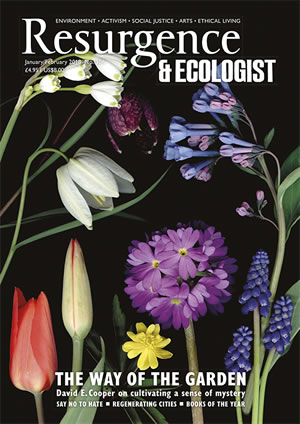Like raindrops in a driving wind, small screens have become so pervasive in human life that it can be difficult to distance ourselves from them. But what are the hidden consequences of this digital storm? Are we, or our children, a “Generation Zapped”?
Los Angeles film director Sabine El Gemayel and cinematographer Carolyn Chen take us on an insightful journey in this sharply contemporary, crowdfunded film, which is currently being hosted by activist groups and other communities around the world, with online platforms and DVDs in train.
A percussive soundtrack plus footage of young people on their phones is offset by distinguished precautionary voices. “Had there been pre-market testing, cell phones would never have made it into the marketplace,” suggests George Carlo, a former head of cell-phone safety research for the US Cellular Telecommunications Industry Association, one of those interviewed in the documentary. His 1990s post-market research programme was sidelined, he feels, after reporting adverse health effects.
Human stories, set in America, lend warmth to the film. In California, brain tumour survivor Alan wears his ‘Right to Know’ badge with pride, echoing the city of Berkeley’s law for open phone-safety information. Cancer surgeon John West confides how X-rays of five tumours, sited where his patient Donna tucked her mobile phone into her bra, “clicked with” him, alerting him – and colleagues – to plausible risks from the devices.
Revealed in striking images, the radiation-emitting infrastructure behind our digital boom is darkly dazzling: mobile phone masts, smart meters, the race for 5G. Alongside such breakneck expansion, health research is struggling to keep pace, the film suggests, let alone be heard.
The possibility of genetic or neural risks to unborn children from parents’ mobile phones and tablet computers is also delicately explored. Martha Herbert, a Harvard neurologist, suggests that putting a microwave baby monitor by a baby’s head bears comparison to living by a cell-tower. Children’s microwave exposure in wifi-enabled classrooms, and ways to curb this, are also discussed, while film of a Brussels symposium on new evidence for electrosensitivity is juxtaposed with pieces to camera by people potentially affected by it.
“What cigarette do you smoke, doctor?” asks a 1950s advert: a reminder that mass marketing can lead us over a cliff. Yet the tenor of Generation Zapped is warmly upbeat. We, the people, can draw strength from precautionary scientists worldwide and create, if we wish, cleaner cabled living spaces, and markets for safer products.
Despite its telling graphics, I felt this impressive film could have offered newcomers to the field clearer doorways into the growing, peer-reviewed, precautionary science, as well as the evidence for wifi effects on plants and animals. It could also have used more footage from other continents.
For those just coming to this subject, other pioneering films in this genre, obtainable online, offer different inroads into the theme. Desperately Seeking White Zone (2014), by the French film-maker Marc Khanne, is deftly poetic, fanning from electro-sensitive doctors to refugees in forests. Microwaves, Science and Lies (2014), directed by Jean Heches, is more dynamic, unveiling corruption at world regulatory levels, while the layered, award-winning Take Back Your Power (2017 edition), from Canada’s Josh del Sol, bares the corporate hijack of smart metering – and its costs to health. Using images of Nature, James Russell’s offbeat Resonance: Beings of Frequency (2013) explores the electromagnetic conditions in which life evolved.
“The exposures we now have are unprecedented,” cautions Erica Mallery-Blythe, a British doctor, in Generation Zapped. Aptly named, this humane film is a timely gift for us all.







